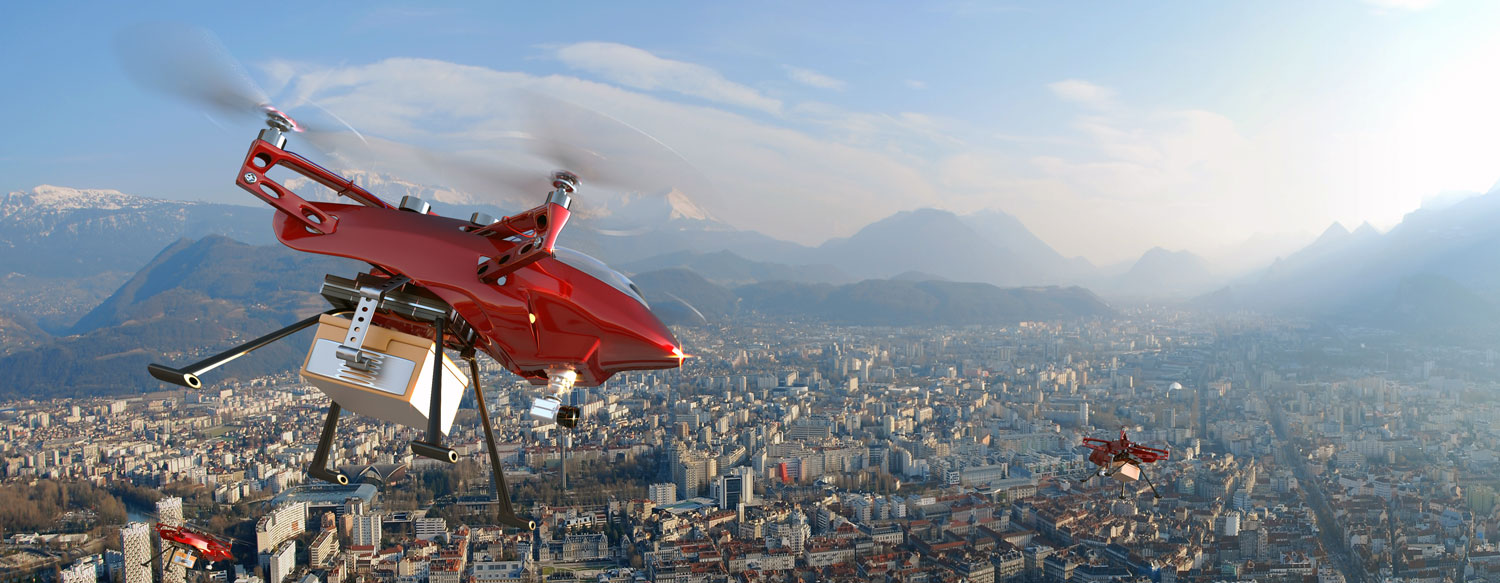 There is a new trend that many are predicting will forever change the industrial world: unmanned aerial vehicles (UAVs), more commonly referred to as drones.
There is a new trend that many are predicting will forever change the industrial world: unmanned aerial vehicles (UAVs), more commonly referred to as drones.
Drones have been in the news quite a bit recently, as there are a number of leaders in the business world who have been rallying to promote their use in commerce. However, new legal developments early this year have provided a mixed bag of news for those who are eager to use drones to improve their supply chain logistics.
The Latest News on Drones in Commerce
In January, an Idaho-based agricultural startup was awarded the first ever U.S. permit to legally fly drones as an agricultural service. The company, Empire Unmanned, proposes to use drones for surveying crops and livestock and has already garnered plenty of interest from prospective customers.
The other landmark piece of recent news relating to drones and supply chain logistics is the FAA’s announcement of a proposal that lays out exact rules for the use of commercial drones. These regulations would allow drones to be used for commercial purposes, as long as the operator is within line of sight of the device, is at least 17 years of age, and has passed an FAA-certified licensure test.
While this development is a great step forward for drones in commerce, there is still a big obstacle for companies who want to use drones for delivery in their supply chain logistics: the FAA proposal explicitly bans operators from dropping any type of objects from a drone.
Despite these bans, many in the industry are excited about what this proposal could mean for the future of drones. Frank Beafore, director of a drone company in Ohio, recently told Dayton Daily News that he believes that these regulations are both “practical” and “achievable.” Companies have already been using drones successfully, especially in the B2C realm.
How B2C Companies Are Already Taking Advantage of Drones
Drones are already being used in a huge number of ways in the B2C industry. From private investigators using drones to bust cheating spouses, to pizza parlors using drones to deliver pies to their customers, drones could potentially change the way that all kinds of companies interact with customers.
It’s important to remember, however, that drones are still in their very early stages. Supply chain logistics professionals need to strike a good balance between experimenting with drones and not diving in too quickly, as there is a well-documented history of drone failures. The Washington Post says that there have been over 400 large military drone crashes since the U.S. started using them in 2001.
Learning from the mistakes and successes of other drone experiments will be the true test of who is successful in the future. There are countless B2B uses for drones, particularly for supply chains. From initial strategy research, to procurement, to shipping, the opportunities are endless. However, only time will tell exactly how drones will impact the field of supply chain logistics, but those in this sector should be paying attention if they want to stay on the cutting edge.

About Michael Wilson
Michael Wilson is AFFLINK'S Vice President of Marketing and Communications. He has been with the organization since 2005 and provides strategic leadership for the entire supply chain team. In his free time, Michael enjoys working with the Wounded Warrior Project, fishing, and improving his cooking skills.





